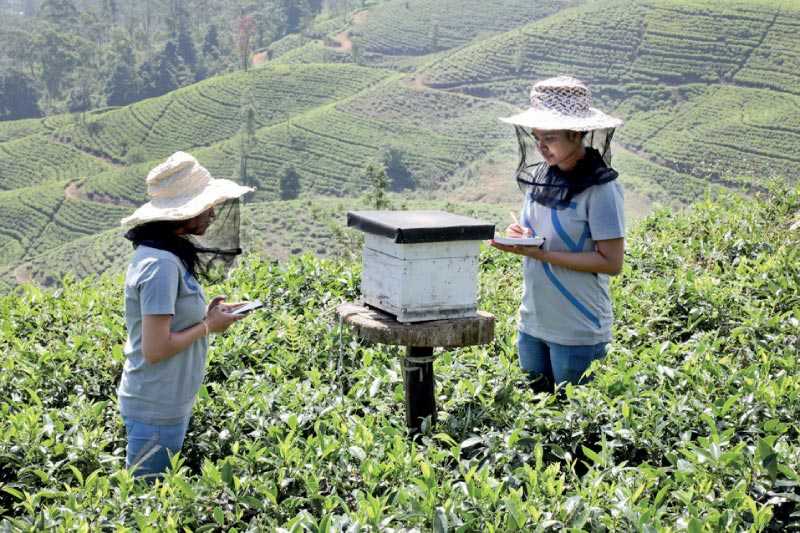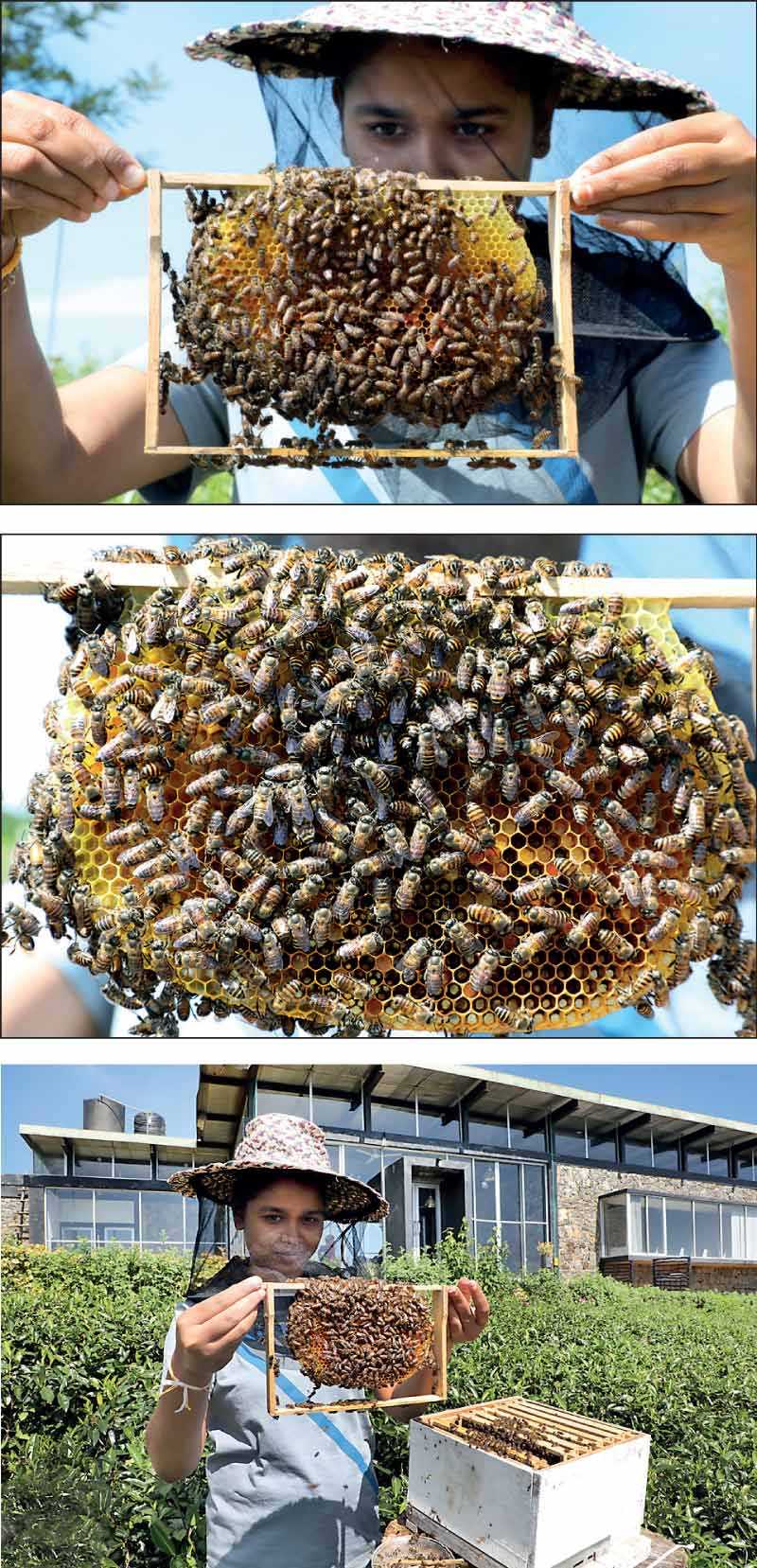Thursday Feb 19, 2026
Thursday Feb 19, 2026
Thursday, 20 May 2021 02:17 - - {{hitsCtrl.values.hits}}

|
The Research Hub located at the Dilmah One Earth Climate Change Centre Queensberry Estate – Pic courtesy The Sunday Times, M.A. Pushpa Kumara
|
Our quality of life depends on many services that nature provides for free. One of these is pollination. According to the UN, over 75% of agricultural land depends on pollinators such as bees, birds, bats, and butterflies.
However, 40% of invertebrate pollinator species – particularly bees and butterflies – face extinction. Therefore, in 2020, Dilmah Conservation (DC) who has several species conservation initiatives under its name, launched a three-year bee conservation program: ‘Bee A Keeper’. Aimed at conserving the Sri Lankan bee population the effort includes research activities and the creation of a replicable livelihood model for people through sustainable bee-keeping.
For greater efficacy, the focus areas of the ‘Bee A Keeper’ program have been separated into research, project, educational, farming, mangrove, and communal hubs.
The Research Hub, located at the One Earth Climate Change Centre, Queensberry Estate, Nawalapitiya, began in June 2020 by establishing 10 bee colonies. Its main occupations are research and evaluation of the environment’s suitability for beekeeping. Ongoing activities include research into behavioural patterns and adaptation of wild honeybees to the environment, foraging behaviour of bees, and introduction of queen bees to queen-less colonies to ensure their survival.
In January 2021, work on the Project Hub began at the DC Centre in Endana, Delwala Division. Focused on community beekeeping, the Endana apiary currently has six bee colonies. Five colonies have performed well. Most of the colonies are maintained by community members. They are supervised and trained by the Centre Coordinator and two research students from the Rajarata University of Sri Lanka. In the long run, Dilmah Conservation aims to develop the community beekeeping programme into a successful cottage industry, where sustainably produced bee’s honey can reach the marketplace. It has been planned to translocate bee boxes in 10-15 households within and outside the Endana Nature Corridor, another one of DC’s initiatives, before the end of this year.
The Hubs also provide the perfect environment for beekeeping enthusiasts to learn about beekeeping. In January a beekeeping training workshop was conducted for a few Resplendent Ceylon staff. Further workshops have been halted for the time being as centres remain closed to the public due to COVID-19. However, in celebration of World Bee Day (20 May) DC will launch a free webinar series on 18 May called the ‘Friendly beekeeper’, inviting the general public to learn about bees and sustainable beekeeping.
Albert Einstein did not exaggerate when he said, “If the bee disappeared off the face of the earth man would only have four years left to live.” Bees are key to us achieving the United Nations Development Goals of food security and biodiversity – thanks to the contribution bees make to the world through pollination. Apart from Bee a Keeper program, DC also contributes to food security and biodiversity through its sustainable agriculture and reforestation projects.
To register for the ‘Friendly Bee Keeper’ webinar series go to ‘Events on Dilmah Conservation facebook page’. For more information call 011 4 822 139.
